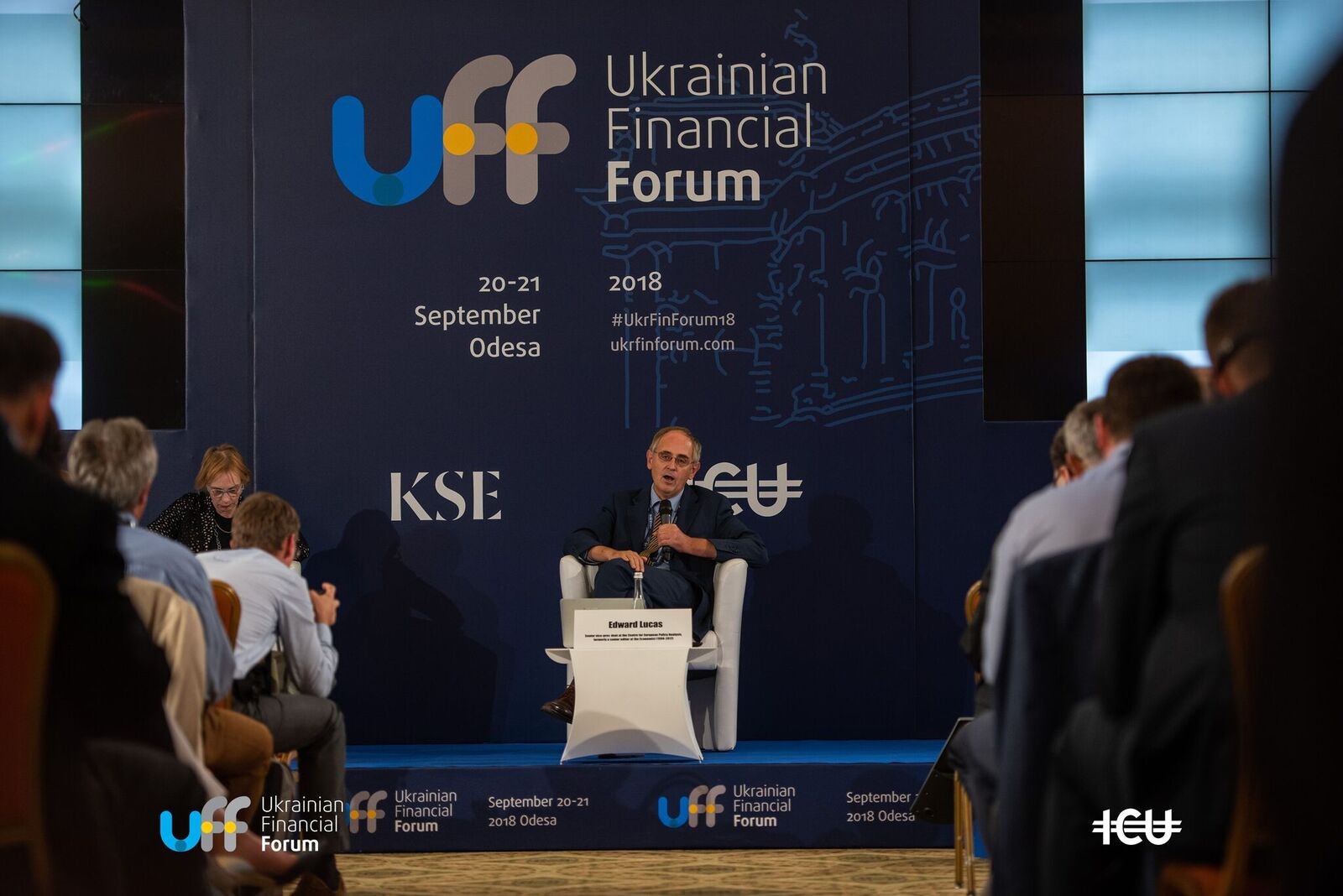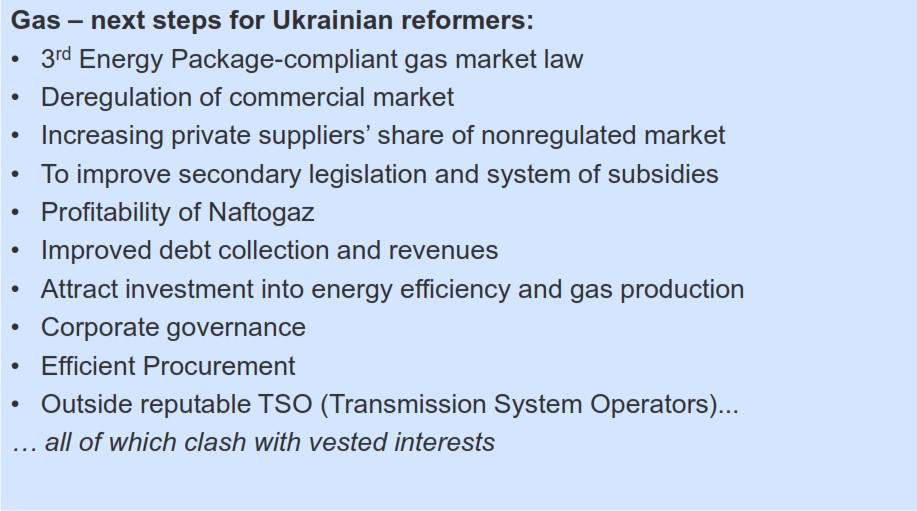Edward Lucas: Ukraine’s gas sector still needs more market competition and transparency
Edward Lucas, a keynote speaker at the Ukrainian Financial Forum 2018, had insightful comments about the Ukrainian natural gas market and transit system. In reality, competition in the gas market remains fake, and to make it real, authorities should decisively solve the issue of hidden ownership. Ukraine also needs to re-establish the trust of outsiders in its gas transit system to keep it viable.

Gas distribution: the issue of a competitive market is still outstanding
The business of getting energy from the transmission system network to the consumer is a business which should be competitive on the basis of efficiency and innovation. Otherwise, a vertically integrated energy system leads to rent seeking and corruption. In theory, Ukraine has competition on the intermediary level of the gas market. But so far, this competition is more of a fake, Potemkin competition, because within it is a lot of hidden ownership, little clarity and no transparency. In fact, there are a very limited number of actual market participants. Ukraine can dismantle this Potemkin competition by obliging intermediaries to disclose their ultimate beneficial ownership as a condition of licensing. These issues are more appropriate for the financial regulator than for the energy regulator, but it can be done.
There are still black holes in the transmission system, for example, huge lumps of debt, mostly the $2bn owed by intermediary gas companies to Naftogaz. How is it going to be collected? And if you knock out the intermediary companies, who will take their place? It is all about boring but actually very important stuff, like who owns info about consumers, for example. If it belongs only to one supplier, then any new participant entering the market will have to start from scratch building up a database of consumers.
Gas transit raises questions of trust from the outside and inappropriate use of rent
Lucas would like to believe that waste in the Ukrainian gas transmission system is just waste, but in many cases he suspects it is theft disguised as waste. Gas deemed to have leaked into the atmosphere is most likely sold on the deregulated market. The outside world needs to have confidence that Ukraine as a gas transit country is able to deal with that problem. Lucas recalls one of the senior Czech officials saying he would actually prefer having Nord Stream 2 and receive gas from Germany rather than Ukraine because he does not trust Ukrainians to run their gas transit properly. That was pretty shocking to hear from a country that is supposed to be Ukraine’s ally. This also demonstrates that Ukraine really needs to re-establish the trust not only of domestic voters, but also from the outside.
Nord Stream 2 is worth fighting against, but Ukraine needs to form a back position if Nord Stream does happen. In this it needs to have terms not entirely disadvantageous for Ukraine. Germany understands that, and they do not want to end all East-West gas transit. They prefer diversified gas supplies. So it is probable that Ukraine will receive a guaranteed slice of transit gas supply.
“I’m a friend of Ukraine, and I worry about that”, said Lucas. “It’s nice getting $2bn per year, but if you ask for a full accounting of the revenues that have been spent in the past, it will be hard to say that every penny of these revenues has been spent to the benefit of Ukraine’s people. Wherever you have unearned income, you have the danger of corruption. And fundamentally the transit is rent, the money has not been spent on modernizing the transit system and making it leak-proof. It leaks gas, but it also leaks money. If you do end up with a slice of transit revenues post-Nord Stream 2, I hope that Ukrainians will make it absolutely transparent. The transit fee is free money, and when people see free money, they have a tendency to steal it,” he concludes.
Reform priorities in Ukraine’s natural gas sector from Edward Lucas’s presentation
